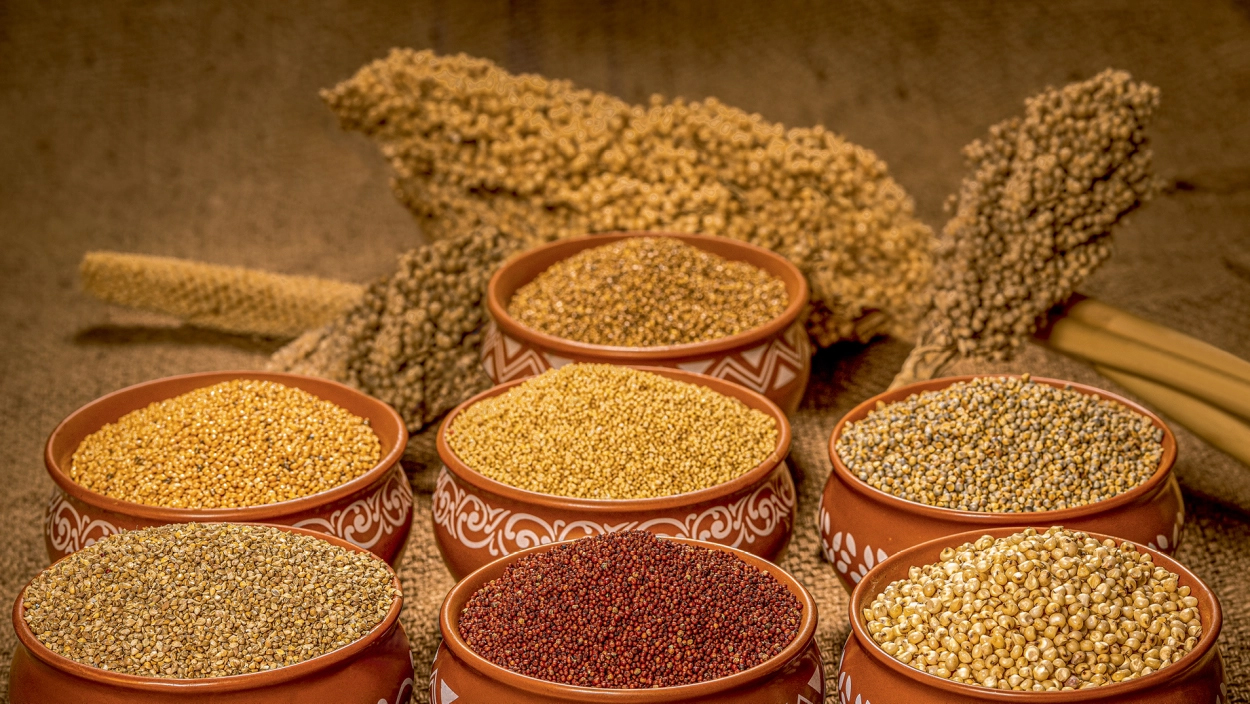As the scorching summer heat envelops us, it becomes imperative to tweak our diets to stay healthy and well-nourished. Millets, the ancient grains packed with nutritional benefits, emerge as an excellent option for a summer diet. Their versatility, combined with a multitude of health benefits, makes them an ideal choice for those looking to maintain a balanced and refreshing diet during the hot months. However, like any other dietary change, there are certain dos and don’ts to keep in mind when incorporating millets into your summer meals.
Dos:
- Choose Cooling Varieties: Opt for millets that have cooling properties, such as pearl millet (bajra) and foxtail millet. These millets help in regulating body temperature and preventing heat-related ailments.
- Hydration is Key: Millets have a high fiber content, which can sometimes lead to digestive issues if not consumed with ample water. Make sure to drink enough water throughout the day to aid digestion and prevent any discomfort.
- Diversify Your Meals: Experiment with different millet recipes to keep your meals interesting and varied. Millets can be used in a variety of dishes, including porridges, salads, pilafs, and even baked goods.
- Include Fresh Produce: Complement your millet-based dishes with an array of fresh, seasonal fruits and vegetables. These additions will enhance the nutritional value of your meals and provide essential vitamins and minerals.
- Practice Moderation: While millets are highly nutritious, consuming them in moderation is crucial. Incorporate them as part of a balanced diet, alongside other whole grains, proteins, and fats.
- Sprouting Millets: Consider sprouting millets before consumption. Sprouting enhances their nutrient bioavailability and makes them easier to digest.
- Mindful Cooking Techniques: Opt for cooking methods that retain the nutritional content of millets. Steaming, boiling, and roasting are healthier choices compared to frying.
Don’ts:
- Avoid Overconsumption: While millets are nutritious, excessive consumption can lead to an imbalance in your diet. Remember that a variety of foods is key to a well-rounded nutritional intake.
- Don’t Skip Soaking: Some millets, like foxtail millet, benefit from soaking before cooking. Soaking helps reduce cooking time and improves their digestibility.
- Limit Refined Additions: While preparing millet dishes, avoid excessive use of refined sugars, oils, and processed ingredients. The goal is to keep the meals wholesome and nourishing.
- Don’t Rush Chewing: Chewing millet-based foods thoroughly aids digestion. Avoid rushing through your meals to allow your body to process the nutrients effectively.
- Avoid Heavy Spices: During the hot summer months, it’s advisable to steer clear of heavy spices and excessive salt. Opt for milder, cooling herbs and spices to season your millet dishes.
- Avoid Combining with Heavy Proteins: Try not to combine millets with heavy protein sources, as this might lead to digestive discomfort. Instead, pair millets with lighter protein options like legumes and cottage cheese.
- Stay Away from Overly Processed Varieties: Processed millet products like refined flours and instant mixes might lack the nutritional benefits of whole millets. Whenever possible, choose whole millet grains or minimally processed products.
Conclusion:
In conclusion, millets can be a valuable addition to your summer diet, offering a plethora of nutritional benefits. By following the dos and don’ts mentioned above, you can harness the power of these ancient grains to stay nourished and energised during the hot months. Remember that a balanced and mindful approach to incorporating millets into your meals is key to reaping their full benefits and enjoying a healthier summer.
The author is a Nutrition Expert, The Wellness Table







